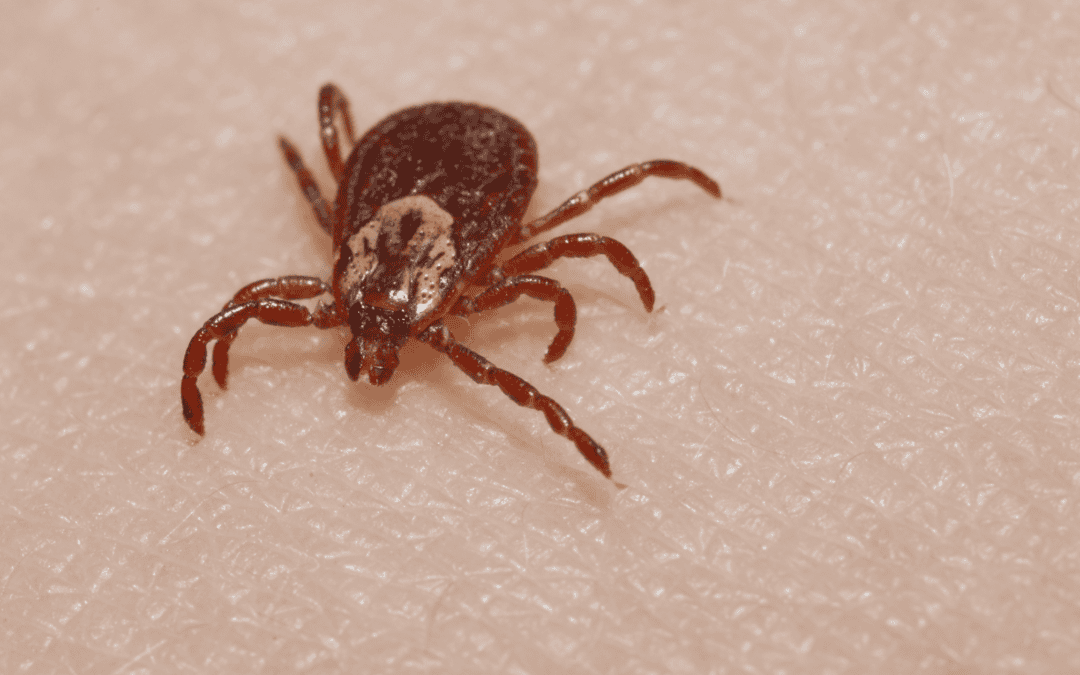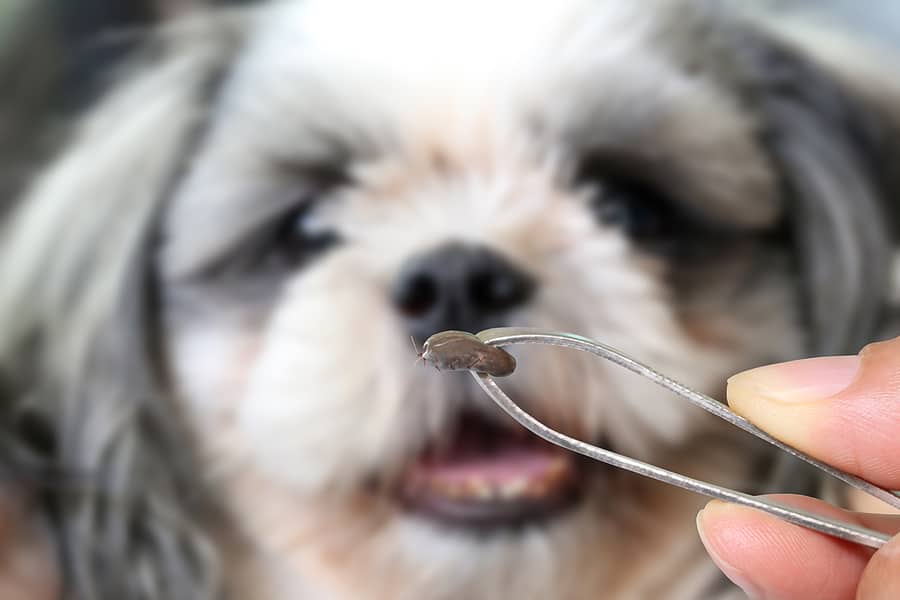
Jul 26, 2024 | DIY Pest Control, Pest Control
Ticks are a common nuisance in Georgia, often found in wooded areas, tall grasses, and even in backyards. These tiny arachnids can latch onto you or your pets and cause a range of health issues. Knowing what to do if you get bitten by a tick is crucial to prevent complications. In this blog, we’ll discuss common types of ticks in Georgia, the diseases they can spread, what to do if you get a tick bite, and preventive measures to keep ticks at bay.
Common Types of Ticks in Georgia
- Blacklegged Tick (Ixodes scapularis): Also known as the deer tick, this type is prevalent in Georgia and is notorious for transmitting Lyme disease.
- Lone Star Tick (Amblyomma americanum): Recognizable by the white dot on the back of adult females, this tick can spread diseases like ehrlichiosis and tularemia.
- American Dog Tick (Dermacentor variabilis): Found in grassy and brushy areas, it is a known carrier of Rocky Mountain spotted fever.
Diseases Spread by Tick Bites
- Lyme Disease: Transmitted primarily by the blacklegged tick, symptoms include fever, headache, fatigue, and a characteristic skin rash called erythema migrans.
- Rocky Mountain Spotted Fever: Spread by the American dog tick, it presents with fever, rash, and sometimes fatal complications if not treated promptly.
- Ehrlichiosis and Tularemia: These diseases can be spread by the lone star tick and cause symptoms like fever, headache, and muscle pain.
What to Do If You Get a Tick Bite
- Remove the Tick Properly:
- Use fine-tipped tweezers to grasp the tick as close to the skin’s surface as possible.
- Pull upward with steady, even pressure. Avoid twisting or jerking the tick, as this can cause the mouth parts to break off and remain in the skin.
- If mouth parts remain in the skin, remove them with tweezers if possible. If not, leave them alone and let the skin heal.
- Clean the Area:
- After removing the tick, thoroughly clean the bite area and your hands with soap and water or rubbing alcohol.
- Monitor for Symptoms:
- Watch for signs of tick-borne illnesses, such as rash, fever, fatigue, and muscle aches. These symptoms can develop days to weeks after a tick bite.
- If you develop a rash or other symptoms, contact your healthcare provider promptly.
- When to Worry About a Tick Bite:
- Seek medical attention if you cannot completely remove the tick, if you develop a rash around the bite site, if you experience flu-like symptoms, or if the bite site becomes red, swollen, and painful.
Preventing Tick Bites When Outdoors
- Wear Protective Clothing: Long sleeves, pants tucked into socks, and light-colored clothing can help you spot ticks more easily.
- Use Tick Repellents: Apply insect repellents that contain DEET, picaridin, or permethrin to clothing and exposed skin.
- Avoid Tick-Prone Areas: Stay on well-trodden paths and avoid tall grass and thick vegetation.
- Check for Ticks Regularly: Perform tick checks after spending time outdoors, especially in high-risk areas. Pay special attention to hidden areas like armpits, behind the knees, and the scalp.
Preventing Ticks on Your Pets
- Use Tick Prevention Products: Consult your veterinarian about tick prevention products for your pets, such as tick collars, topical treatments, and oral medications.
- Check Pets Regularly: Inspect your pets for ticks daily, especially after they’ve been outdoors. Focus on areas around the ears, neck, and between the toes.
- Keep Your Yard Tidy: Maintain your yard by keeping grass short, removing leaf litter, and creating a tick-free zone with wood chips or gravel between wooded areas and your lawn.
- Bathe Pets Frequently: Regular baths can help you spot and remove ticks before they attach to your pet’s skin.
Dealing with ticks can be daunting, but your local pest control company in Georgia is here to help. We offer comprehensive pest control services to protect your home, family, and pets from tick infestations. Our experienced technicians can identify tick hotspots around your property and provide effective treatments to eliminate ticks and prevent future problems.
Ticks are more than just a minor inconvenience—they can pose serious health risks to you and your pets. By understanding the types of ticks common in Georgia, recognizing the diseases they can spread, and knowing what to do if you get bitten, you can take proactive steps to protect yourself and your loved ones. Remember, prevention is key, and regular tick checks combined with pest control services can keep your environment tick-free.

Aug 10, 2021 | Pest Control
While we soak up the last of the summer weather, many of us are hiking mountains, exploring parks, or just enjoying our backyard. While these activities are great for the whole family, there is a chance of being exposed to fleas and ticks. These pests are extremely small, making them hard to spot and dangerous if not treated in enough time. We break down the difference between these two pests and how you can prevent their bites.
Ticks
Ticks are about 1/8 of an inch and can be a wide range of colors, often dark. These insects usually live in low-lying areas such as grass, shrubs, and bushes. To survive, they need blood and will often feed on humans, squirrels, raccoons, birds, dogs, and more. Their bites can cause irritation or even an allergic reaction. Their mouthparts will even remain on the host’s skin.
These pests can be dangerous as they will transmit diseases such as Lyme disease, anaplasmosis, and babesiosis.
Fleas
Dark reddish-brown in color, fleas are also only 1/8 of an inch long. These pests are found in various environments, but they prefer and are most active in warm, humid temperatures. Like ticks, fleas feed on a host for blood, including humans, but would prefer to feed on hairy animals such as dogs, cats, rats, opossums, and more. Fleas can be tough to spot as they move from host to host very quickly.
If bitten, they can cause small, red, itchy spots on the skin. If the spot is scratched too many times, it can begin to bleed.
Preventing both fleas and ticks from biting you can seem daunting since they can be hard to find, but it’s all about taking precautions before you head out on your next adventure! Here are a couple of easy things to do to prevent fleas and ticks from biting you and your family:
- If exploring in tall grass or wooded areas, make sure to wear long pants, long sleeves, and closed-toed shoes.
- Always use insect repellent that contains DEET before you leave your house.
- If you take your pets, treat them with repellent products to reduce their risk of getting bitten.
- After your adventure, check yourself and your pets for any ticks or fleas. Some common places they like to latch onto are the backs of knees, armpits, scalp, the back of the neck, and behind the ears.
- If you’ve noticed these insects are infesting your yard or getting inside the house, consider calling your local pest control company where they can inspect and provide a prevention plan.

